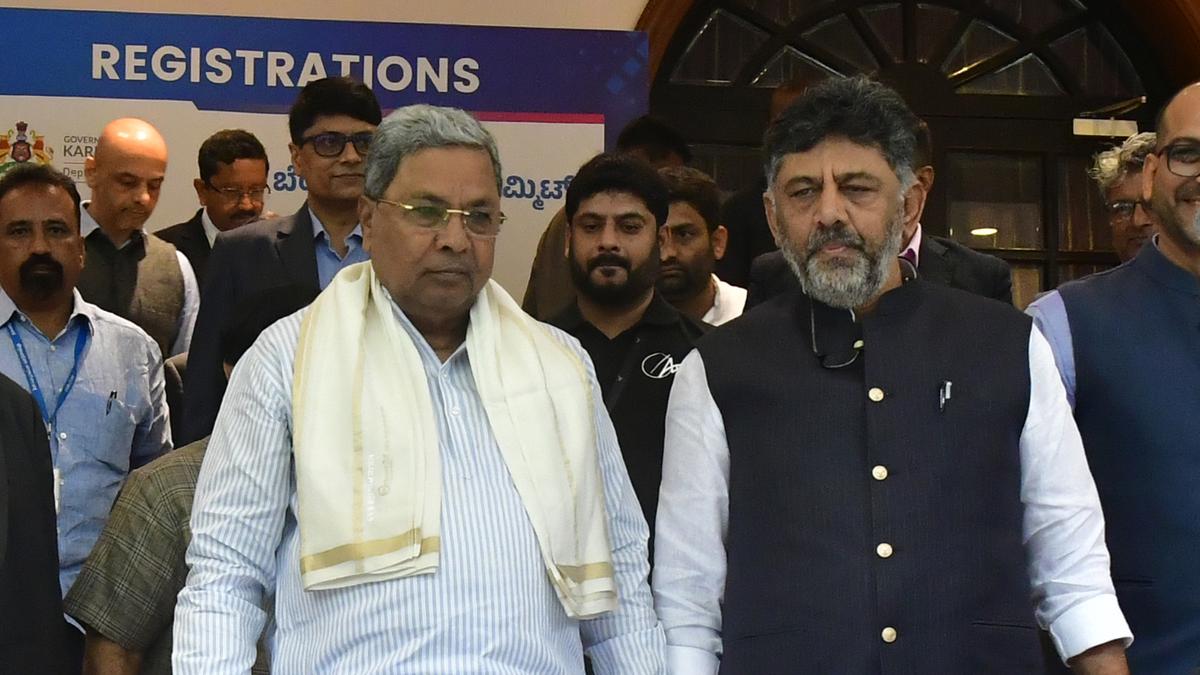
Past the first 100 days hurdle Premium
The Hindu
Though 100 days is too short a period to evaluate the performance of any elected government, the new Congress-led government in Karnataka seems to have settled down
The Siddaramaiah-led Congress government in Karnataka has completed 100 days in office and earned plaudits for rolling out four of its five pre-poll guarantees, which helped in propelling it to power.
Chief Minister Siddaramaiah and his Deputy, D.K. Shivakumar, who is also State party chief, have seemingly reconciled differences over sharing of power, and held two sittings of the State legislature — first to enable the swearing in of new members, and second, to present the Congress government’s full-fledged Budget for the current year, dumping the pre-election Budget presented by the previous Bharatiya Janata Party (BJP) government. The new government seems to have settled down to show that it means business.
Though 100 days is too short a period to evaluate the performance of any elected government, the Congress party has managed the task of constituting the full cabinet of 34 Ministers and has, by and large, quelled heartburn among some seniors for not being accommodated.
But some senior Congress leaders such as Yelburga MLA Basavaraja Rayareddy and MLC B.K. Hariprasad, who were denied ministerial berths, continue to cause embarrassment to the Chief Minister by writing letters to him over their disgruntlement and ensuring that the media gets wind of them.
What has also remained an issue is the anger of “unhappy” Congress MLAs over not being accorded the “respect” due to them by Ministers and, more importantly, not being given funds for work in their constituencies.
The government, apparently, is going slow on releasing funds to the MLAs on the excuse that implementation of the guarantees would require a whopping ₹52,000 crore, and that assumes paramount importance in view of next year’s Lok Sabha poll battle. Besides, there is also the burden of payments of over ₹25,000 crore to contractors left unpaid by the previous regime.
The first has come in handy to explain and pacify the MLAs on the “go slow” approach in releasing funds, while the second was sought to be dealt with by harking back on the pre-poll strategy of targeting the BJP over its “40% commission” allegation. The government has instituted probes and tried to assuage contractors by saying payments will be released after verifying the work executed and after the findings. Recently, under pressure, Mr. Shivakumar has said 50% of pending bills in Bengaluru civic works will be cleared soon.





















 Run 3 Space | Play Space Running Game
Run 3 Space | Play Space Running Game Traffic Jam 3D | Online Racing Game
Traffic Jam 3D | Online Racing Game Duck Hunt | Play Old Classic Game
Duck Hunt | Play Old Classic Game











